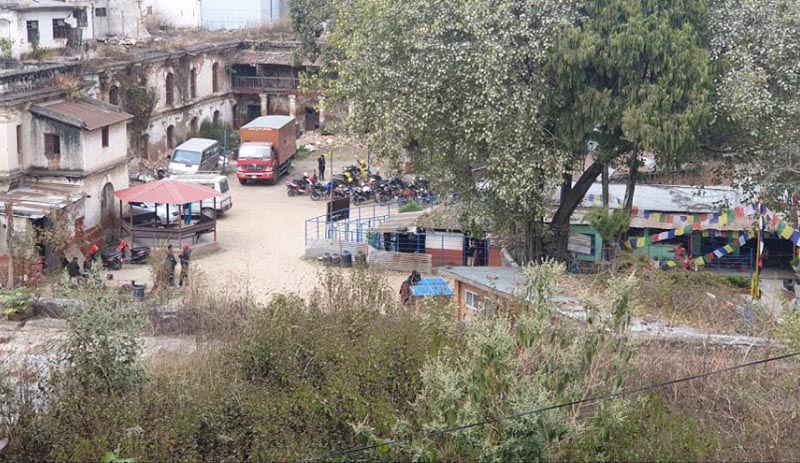Inmates at risk of contracting coronavirus in Kathmandu valley
Kathmandu, May 25
About a month ago on April 22, two nurses working in the country’s largest prison at Sundhara tested positive for COVID -19 under the rapid diagnostic test.
The test result sent a wave of panic among the 25,087 jailbirds, including 773 juveniles and additional 773 infants living with their parents inside a total of 72 prisons and eight juvenile correction homes across the country.
Luckily, after two days, the second test conducted on them through Polymerase Chain Reaction test showed that both of them had not contracted the virus. Following the incident, authorities took another step to subdue possible outbreak of the contagion by promising to establish quarantine facility inside the prisons.
Ever since, the Department of Prison Management has established quarantine facilities at Nakkhu Prison and Sundhara Prison inside Kathmandu valley and one at Jhumka Prison of Sunsari district. All the three quarantine facilities have the capacity to accommodate 30 to 40 beds.
New prisoners sent by the court, prisoners showing symptoms of COVID-19 or those who had recently visited hospitals due to health issues have been kept in the quarantine facility. Most of these quarantine facilities are occupied by suspected patients, according to DoPM officials.
“Nakkhu quarantine and central jail’s quarantine at Sundhara are already packed. We are not sure how we will subdue the cases if the virus starts spreading among employees or prisoners,” said DoPM Spokesperson Debarshi Sapkota.
While the number of quarantine facilities are already scarce, officials at DoPM have not managed quarantine facilities effectively due to lack of space inside the prisons.
Most of the prisons in the country now accommodate almost twice the number of prisoners than their real capacity. For instance, the Sundhara-based Jaggannath Dewal Prison — also the country’s largest prison — now accommodates more than 3,150 prisoners. This number is much higher than the standard number of around 1,700 prisoners it can accommodate.
Jailbirds sleep in cramped conditions. Many opt to sleep together, especially in winter or in cold places. They eat in a messy condition, share washrooms and play together in group. Authorities fear the disease could spread like wildfire inside prisons if any a jailbirds contracts the virus.
Hundreds of fresh people are sent to prisons across the country. Likewise, if a large number of jailbirds require to be hospitalised for medical check-up, they are likely to contract the virus. Similarly, staffers working at the prison can also contract the virus.
Director General of DoPM Pradipraj Kandel, urged jail staffers and inmates not to panic as they were working to contain the spread of virus inside prisons.
A version of this article appears in e-paper on May 26, 2020, of The Himalayan Times.






